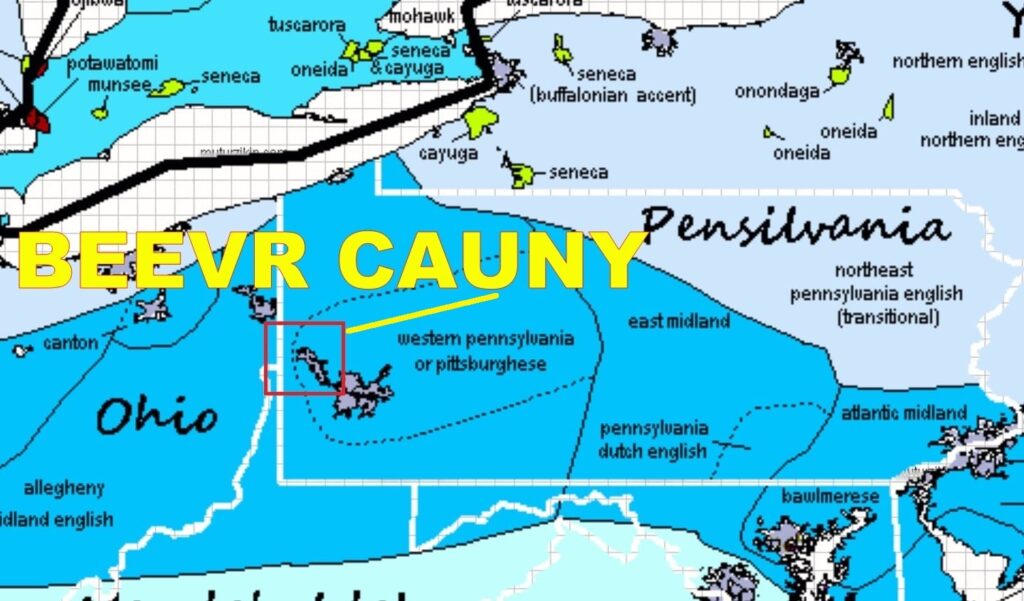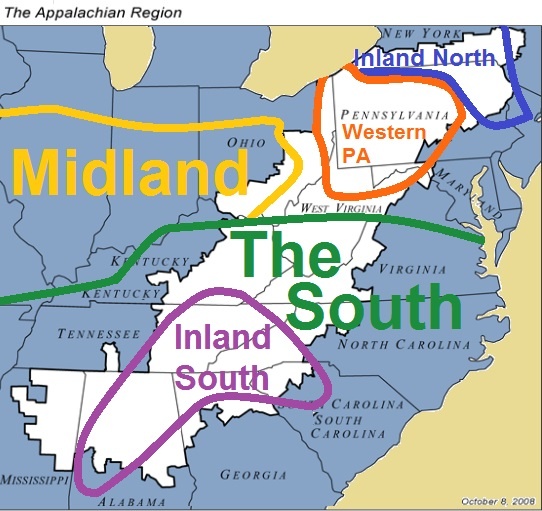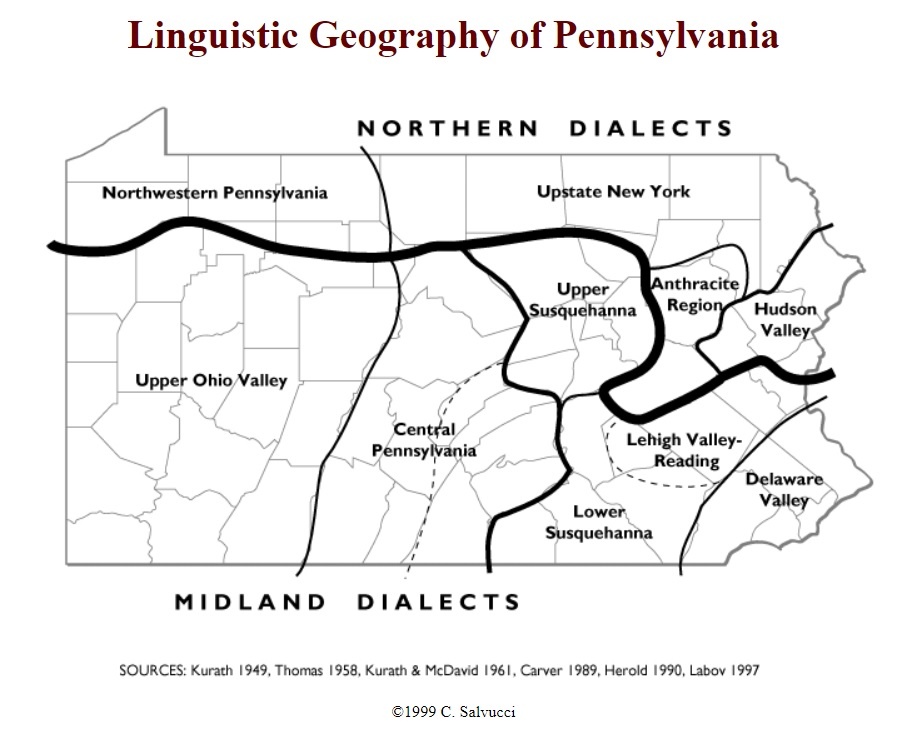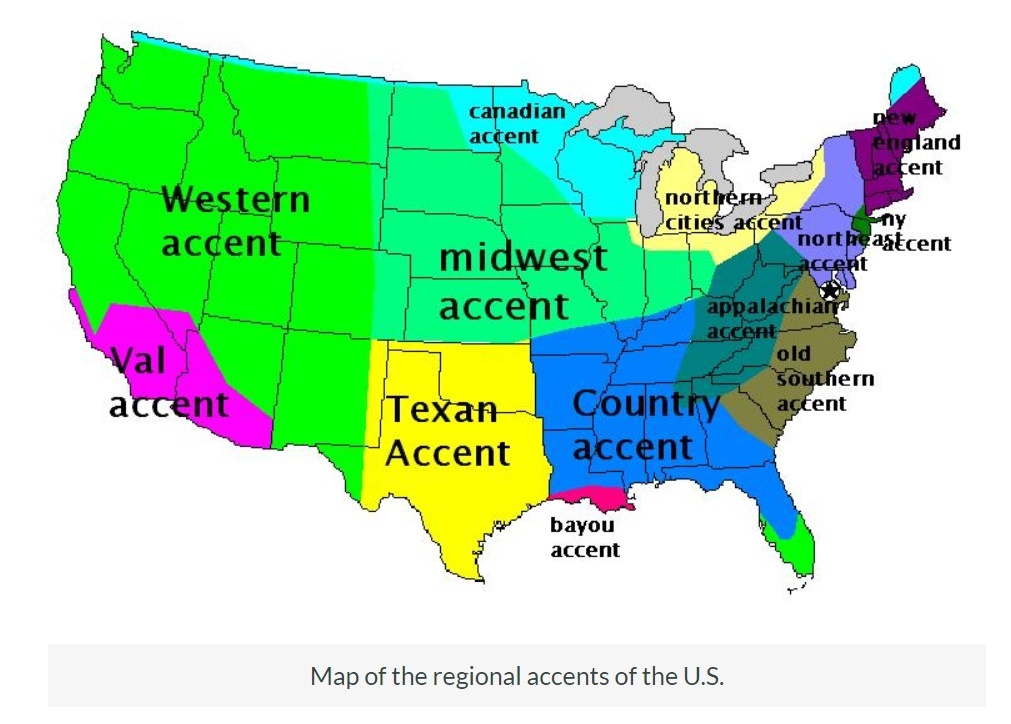Appalachian Beaver County
Language
Are Some of Yinz Northern Hillbillies 'n At?
Look up the term hillbilly and typical definitions refer to an unsophisticated country person–one who is uneducated, backwards, perhaps old fashioned. Most often hillbilly is meant to be derogatory. To call someone a hillbilly is a slight, a put down–but sometimes in an endearing way.
However, understanding the origin of the word and its historical development and change over time (etymology) gives us a more complicated understanding. Linguistic sources suggest that billy comes from Scots-Irish culture referring to a close companion or comrade; it expresses affection and familiarity, perhaps kinship. In more general terms, a billy is sometimes akin to a fellow or associate.
Hillbilly doesn’t appear in print until the late 19th century (perhaps as early as 1881), and its reference is fascinating, but not flattering:
I would hate to see some old railroad man come here and take my job, and then, I don’t think it is right to hire some Hill Billy and give him the same right as I just because he was hired the same time I was. [The Railroad Trainmen’s Journal, vol. ix, July 1892]
In short, a Hill-Billie is a free and untrammelled white citizen of Alabama, who lives in the hills, has no means to speak of, dresses as he can, talks as he pleases, drinks whiskey when he gets it, and fires of his revolver as the fancy takes him. [New York Journal, April 23, 1900] (Online Etymology Dictionary)
Hillbilly has never been able to shake its pejorative flavoring, keeping company with yokel, hick, redneck, white trash, trailer trash, peckerwood, and cracker. Anything described as hillbilly is mockingly inferior: hillbilly mansion (mobile home), hillbilly heroine (oxycodine), hillbilly music (old time country music), hillbilly Walmart (Dollar General discount store), hillbilly humor (unsophisticated jokes), hillbilly highway (reference to escaping one’s circumstances). Other examples include hillbilly caviar, hillbilly champagne, hillbilly wedding, hillbilly preacher, hillbilly ingenuity, and hillbilly Hilton.
Hillbilly Beaver County
The term hillbilly has a particular use and connotation in Beaver County, referring to the mostly white country or rural folk beyond the urban and ethnically diverse river towns. Neighboring West Virginians are often referred to as hillbillies, as are rural Ohioans of the rolling hill country nearer to West Virginia.
The stereotypical use of hillbilly–which often includes references to missing teeth, inbreeding, poverty, and illiteracy–might be dismissed as humorous kidding, but the intent most assuredly remains insulting. In a research study examining how young West Virginians feel about outside labels such as hillbilly, one person stated, “My mom, she gets downright mad. She says ‘I’m not a hillbilly, I’m a mountaineer.’ I have seen her ready to come to blows over it.”
The research concludes, “the word ‘hillbilly’ needs to be viewed for the negative moniker it is. Like any other socially unacceptable term for oppressed people, it is inextricably linked with creating a disparaging stereotypical image and should be eliminated from American discourse.”
On the other hand, a West Virginian living in Western Pennsylvania had a completely different interpretation: “I don’t get pissy when people refer to me as being a hillbilly (being from WV although I lack the local accent from there), so I don’t get why people don’t laugh about it and utilize it as a term of endearment.” (City-Data Forum: What is a Yinzer? 2011).a
Dialect
The study of language is extremely complicated involving many different fields of study and perspectives, from anthropology to computational linguistics. But our exhibit here is mostly concerned with a better understanding the Appalachian dialect and its presence (or lack thereof) in Beaver County, Pennsylvania.
Dialect refers to the speech characteristics of a specific social/ethnic group or a geographical area or region. These characteristic features include pronunciation, grammar and sentence construction, phrases and words, and physical manner in which people express themselves. In a wider sense, dialect may also include the shape and manner of art, literature, and other forms of storytelling–especially oral narratives.

Once mostly referred to as Southern Mountain English or Smokey Mountain English, linguists now recognize the more inclusive term Appalachian English in reference to the unmistakable family of dialect(s) spoken throughout the entire Appalachian region covering 205,000 square miles, 420 counties in 13 states, and stretching more than 1,000 miles from Mississippi to New York including more than 25 million people.
Here in Beaver County we generally identify ourselves as native speakers of Pittsburghese, but our accent, grammar, phrases and words cannot be explained by Pittsburghese alone. In fact, what we say and how we way it in Beaver County is far more complicated and nuanced than just one dialect.
If you’ve been to various Walmart stores throughout Beaver County (a goldmine of sociolinguistic sampling), you’ve probably heard a wide range of dialects, including Black vernacular English from the urban river towns and the thick Appalachian drawls percolating up from the rural West Virginia hill country and the “Oh-hi-ya” river valley.
In northwestern Beaver County, closer to Great Lakes – Western Reserve country, it’s common to hear Midwestern accents wafting across the border from Eastern Ohio. Bearing down from the north is an admixture of Great Lakes tempered Pennsylvania Dutch. Pushing into Beaver County from the East is an erudite-sounding dialect gaining traction in the affluent suburbs of southern Butler County
Dialect Maps

 Upper Ohio Valley/Western Pennsylvania
Upper Ohio Valley/Western Pennsylvania
Geographical extent: Clearfield, Cambria and Somerset counties westward to the state border. The northern border runs above Mercer and Venango counties, and apparently continues through the middle of Forest, Elk, and Cameron. Outside Pennsylvania the dialect (with minor variations) extends into Youngstown Ohio; also Wheeling, the northern panhandle, and the Monongahela Valley in West Virginia.
Urban Centers: Pittsburgh
Summary: Midland dialect of the Western Pennsylvania type. Scotch-Irish substratum; as “Gateway to the West” shows affinities with Midwestern, and Appalachian dialects.
Since the early part of this century, the Western Pennsylvania dialect has been demarcated by its merger of short O and AU into an intermediate vowel, so that cot and caught sound alike. Although recently this merger has been spreading into the northern and southern tiers of Pennsylvania.
The dialect’s lexicon owes a great deal to the Scotch-Irish frontiersmen who settled Western Pennsylvania and subsequently migrated southward down the Appalachian chain, mixing with Southern settlers from the Piedmont. The common Scotch-Irish base explains why the Midland dialect of the Pittsburgh area shares many similarities with the Southern dialects of the Appalachians such as the distinctive second person plural pronoun y’uns. A few Pennsylvania Germanisms have made their way into the dialect. Local to Pittsburgh is the flattening of the OW diphthong: aht (out).
Pittsburghese
Pittsburghese is often called Western Pennsylvania English, while some call it Pittsburgh English. Linguists recognize it as a distinct dialect centered on Pittsburgh, but traces of it can be found as far north as Erie, west in Youngstown, Ohio, and south in Clarksburg, West Virginia, and east through central Pennsylvania. Pittsburghese has linguistic roots among several ethnic groups (Scots-Irish, Pennsylvania Dutch, and many European immigrants such as the Polish, Hungarians, Italians, Slovakians, Ukrainians, and Croatians). Although Pittsburghese is included in the Appalachian family of dialects–and it significantly shapes the linguistic landscape of Beaver County–it is not the focus of this exhibit. Instead, we are most interested in exploring and understanding Beaver County’s Appalachian roots more broadly in relation to the other Appalachian regions.
Southern vs. Northern Appalachian Dialect
YouTube creator Adam Goldstein offers up this amusing example of two native Appalachian speakers. He writes, “Compare the softly-tinged twang of Don Knotts (from Morgantown, West Virginia) with the honey-sweet drawl of Andy Griffith (from Mount Airy, North Carolina).”
The comments and reactions posted to this video reveal fascinating perceptions (some conflicting) about West Virginia’s southern and northern dialects. Speakers that sound like Don Knotts can be found throughout southwestern Pennsylvania and the Upper Ohio Valley panhandle region that borders Beaver County.
Accent
Accent refers to the way speakers sound, especially in relation to other speakers in different social and ethnic groups and geographic locations. An accent generally marks the features of pronunciation, but can also include grammar and vocabulary variation.
Inasmuch as Appalachia can be divided into geographic and socio-cultural sub-regions (see the History section of this exhibit), accent differences and similarities are present as well among these regions. There is no single dominant, superior, or definitive accent that represents Appalachian English as a whole.
Appa-LATCH-uh or “Appa-LAY-shuh?
How do Beaver Countians pronounce these words?
- fire (also tire, wire, hire) > fayr, far
- tomato > toe-mate-ah
- wash > worsh
- dish > deesh
- fish > feesh
- sour > sighr
- motorcycle > motorsackle
- wresting > wrastlin
- Coca-Cola > Co’cola
- gasoline > gasleen
- feelings > fillins
- cigarettes > cig-rets
- around the bend > round-da-bend
- come here > commeer
- down the street > downstreet
- picture > pitcher
- milk > melk
- color > kellor
- Steelers > Stillers
Some examples sourced directly from Beaver County residents.A
Grammar
Grammar refers to the structure of language, which tends to be different among social and ethnic groups, geographic region, and contexts of use.
DROPPING THE PLURAL /S
- We got about ten gallon of gas.
- The bear weighed four hundred and seventy-five pound.
- That trip was about 14 mile.
- I am nearly ten year older than my brother.
ALTERNATIVE PLURAL PRONOUNS
- I’m telling yinz all for the last time.
- Yunz (or you’unz) better act straight.
- Them’s not the socks I gave you.
CHANGES TO OBJECTIVE PRONOUNS
- Me and him was walking the tracks.
- My friend and me was down in the crick.
- Her and the baby come for a visit.
ALTERNATIVE VERB TENSES
- I come over the house last night.
- I seen that book on the table.
- You kids was down in the crick again?
- I was all bit up by them bugs last night.
- He give her the ball to play with.
- Was you want’n to go to the store?
DROPPING “TO BE” BEFORE A VERB (see more info about this construction)
- The car needs [to be] fixed.
- The clothes need [to be] washed.
- The dog likes [to be] petted.
Vocabulary
Vocabulary, technically referred to as “lexicon,” refers to the words, terms, and short phrases (idioms) used in a language or dialect.
You might be Appalachian Beaver County if you know and use these words and phrases:
- Grab me a shop’n buggy.
- Where yinz been at?
- Yunz better get up now.
- I hafta worsh some clothes.
- Don’t drive onto the burm.
- We was play’n down in the crick.
- I need a gum band.
- Shut off/out those lights.
- Was you born in a barn?
- She was talk’n up a blue streak.
- He’s just green with envy.
- We cooked up a whole mess of soup.
- This milk is beginning to turn.
- Yinz better redd up your room.
- That car sure is a sorry sight.
- What djeet? Oh, some burgers n n’at.
- Fetch me some wood from that little old shed out back.
- We jumped a deer out by that little old shed.
- Keep yer britches on. We’ll figger this out.
- That boy is all liquored up, ‘gain.
- I’m gonna break some new ground to plant them cabbages.
- I’ll put them deeshes away.
- Scootch over, I want under the covers, too.
- That picture is hanging cattywampus.
- For the last time, you better quit that.
- Jest stop that fool’n ’round.
- Yinz kids better be-hāve back there!
- Here come that ambalance (or ambulince).
- Hand me that worsh rag.
- I just read a story ’bout Dan-ell Boone.
- I’d liketah go to the store with yunz.
- When you doing a load of wash?
- Better get the sweeper out to clean that mess.
- Them kids is all tuckered out.
- Let me show you real quick (or real quick like).
- They live out-backa Rochester.
- I’ll fix your car pretty soon.
- Stop being a real jagoff.
- I need to do the washing soon.
- I got my senior pitchers took last week for school.
- With all the snow it’s get’n slippy outside.
- Them kids threw me in the jagger bushes.
- Go worsh up, we’re hav’n city chicken tonight.
- Put those leftovers in the ice box.
- That drip’n spigot needs fixed.
- That ball is arz.
- That tire’s ’bout to give out.
- That roadkill’s innards was clean across the road.
- He up’n done ran the sweeper without me asking.
- We better get at these chores.
Some examples sourced directly from Beaver County residents.

You must be logged in to post a comment.